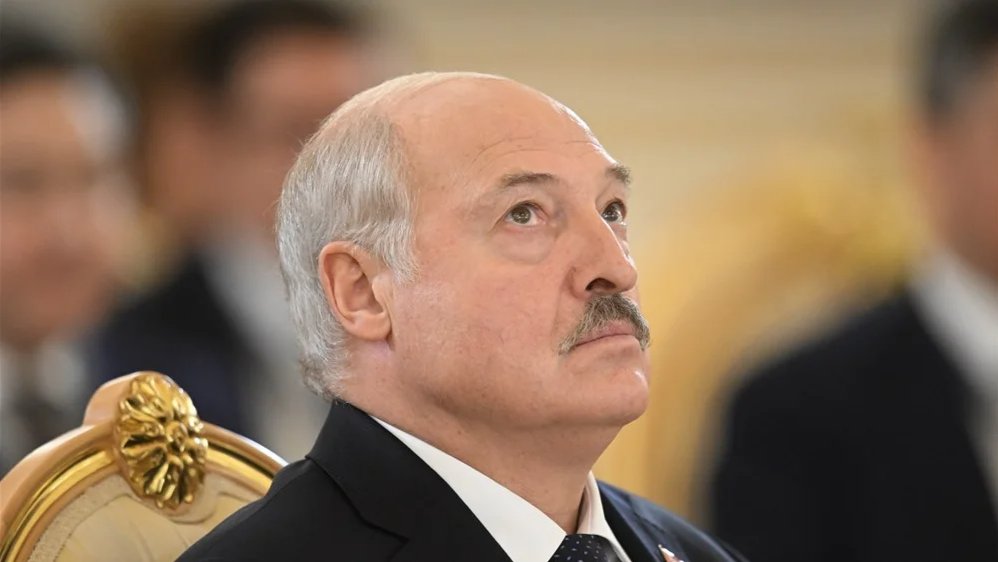Alyaksandar Lukashenka loves to involve himself in historic events, saying he played a decisive role in them. Back in the 90s, he said that he often spoke with Mikhail Gorbachev, sharing advice and discussing important matters.
Lukashenka also loves to paint himself as a peacekeeper: he considers the Minsk negotiations between Kyiv and Moscow back in 2014 his personal achievement. Although Minsk was simply selected as a location at an equal distance from both Moscow and Kyiv.
And now that there is not much left of the Minsk agreements, Lukashenka desperately needed another win that he could talk about with Russian regional journalists who come to Belarus in droves: he scolded Gorbachev, stopped a war, curbed inflation, reversed Prigozhin’s troops, and saved Moscow. What a difficult but fascinating life he leads.
On Friday evening, when Yevgeny Prigozhin started a mutiny, Belarus was busy holding high school graduation parties. So the news didn’t make much of a splash.
By midnight though, the Belarusians reached for their phones and found out that a full-on mutiny was underway in Russia, while Lukashenka’s family plane left Minsk in the middle of the night. Some hoped he’d fled the country.
The plane landed in Bodrum at 5 AM, and it seems that Lukashenka’s family simply went on holiday. Meanwhile, he held two meetings with the law enforcement in the morning. This is the only thing that the state media reported on, without any quotes. The propaganda machine decided to take a break on Saturday: state media and pro-government Telegram channels published one statement by the Belarusian Security Council, and that was it. The statement read:
“Belarus has been and remains an ally of Russia, fully sharing the goals and objectives of the SMO [special military operation]. This is a difficult, forced, and justified mission to protect the Russian people in the Donbass. In fact, this is a struggle for the future of the Slavic world. Belarusians and Russians are fraternal peoples; our states are bound by a political union.
We cannot stay away from the events that are taking place in the south of Russia. Any provocation, any internal conflict in the military and political circles, in the information field and civil society is a gift to the collective West. Even if the interested forces do not stand at the origins of such scenarios, they will not miss the chance to build on them and to spearhead them. This can lead to disaster. There was nothing worse in the history of Russia than a mutiny — destructive and meaningless in its essence.”
At 5 PM, the Kalinouski Regiment, a group of Belarusian opposition volunteers fighting for Ukraine, posted an appeal to Belarusians. The people had high hopes for the regiment’s statement: the Belarusians have long thought that the Kalinouski fighters might be the ones who can actually change things in the country.
In the address, commander of the regiment Dzianis Prokharau said: “Get ready to join self-defence squads. Each city, each street, each block: get ready to control your territory and to maintain order. Military and reserve officers, wait for our signal. The time of freedom is approaching.”
And it really seemed like it was getting closer.
Lukashenka’s regime is staying afloat because of Russian resources. It would have been hanging by a thread had Prigozhin’s mutiny been successful. The weaker Putin is, the weaker Lukashenka is.
And had the Wagner troops taken over the Kremlin, the Belarusian regime would have simply vanished into thin air.
But by 7 PM, Lukashenka’s press service wrote that the man had spent the entire day in talks with Yevgeny Prigozhin on agreement with Vladimir Putin. And he managed to get the Wagner chief to withdraw his troops and to de-escalate the conflict, in order to avoid “a bloodbath” on Russian territory.
Later, Prigozhin stated that the Wagner troops would return to their field camps to “avoid spilling Russian blood”. Meanwhile, the Belarusian propaganda touted Lukashenka as the greatest peacekeeper alive. At 9 PM, his press service reported that Lukashenka had talked with Putin over the phone for the second time that day. The Russian leader thanked Lukashenka for a job well done. And that was that.
“A job well done” — this is what it comes down to. The majority of Russians are mistaken in thinking that Lukashenka is an independent political actor that can make his own decisions and come up with initiatives on his own account. In fact, he simply does what Putin tells him to do: especially now, after the 2020 nationwide protests in Belarus. He is as much an employee of Putin as Russian Defence Minister Sergey Shoigu is, just with a different passport. And his passport is exactly why Lukashenka was entrusted with this task.
It’s unlikely that Prigozhin would have negotiated with any of the Kremlin people: he despises them. Lukashenka is like a man from another universe in this case: he has a different passport, and his capital isn’t Moscow. Just like with the Minsk agreements: de jure, Belarus is a neutral territory, and Lukashenka is a neutral actor. But in reality, he is a loyal vassal of Putin, ready to follow orders in return for a generous tip and a carte blanche for torturing political prisoners in peace.
Join us in rebuilding Novaya Gazeta Europe
The Russian government has banned independent media. We were forced to leave our country in order to keep doing our job, telling our readers about what is going on Russia, Ukraine and Europe.
We will continue fighting against warfare and dictatorship. We believe that freedom of speech is the most efficient antidote against tyranny. Support us financially to help us fight for peace and freedom.
By clicking the Support button, you agree to the processing of your personal data.
To cancel a regular donation, please write to [email protected]

